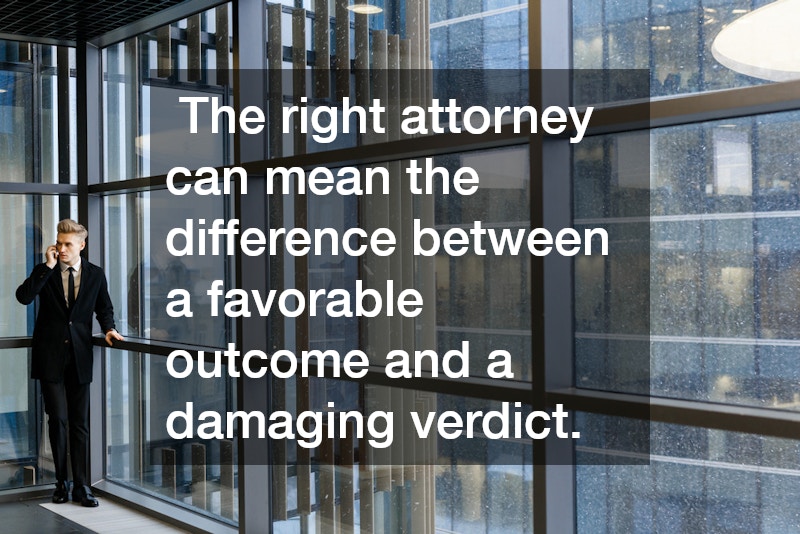
When facing criminal charges, the stakes are high, and the consequences can be severe. It is crucial to understand the role of a criminal defense attorney in navigating the complexities of the legal system. A qualified criminal defense attorney is skilled in protecting the rights of the accused and ensuring a fair trial. They possess a deep understanding of criminal law, defense strategies, and local court procedures, which is essential for building a robust defense.
The right attorney can mean the difference between a favorable outcome and a damaging verdict. Criminal cases often involve intricate legal issues, and only a professional equipped with knowledge and experience can dissect these complexities. Moreover, an attorney with a solid reputation and understanding of the local judicial system can effectively negotiate with prosecutors, potentially leading to reduced charges or dismissal of the case entirely.
Furthermore, a great criminal defense attorney provides more than just legal representation; they offer emotional support during one of the most stressful times in a person’s life. They advocate for the client’s best interest while providing guidance and reassurance throughout the legal process. Therefore, having the right defense can be a source of immense relief and confidence.
Identifying Relevant Experience and Expertise
Not all attorneys are created equal, and when it comes to criminal law, specialization matters. It is essential to find an attorney who specializes in criminal defense and has a proven track record in handling cases similar to yours. A criminal defense attorney with extensive experience will be familiar with the intricacies of various types of charges and can formulate an effective defense strategy tailored to the specific circumstances of your case.
Experience in the courtroom is another critical factor to consider. An attorney who regularly appears in criminal court proceedings is likely to have developed a good rapport with judges and prosecutors. This familiarity can be advantageous when negotiating plea deals or arguing motions on your behalf. An attorney’s courtroom demeanor and advocacy skills are equally important, as they must be persuasive and assertive in defending your rights.
Furthermore, expertise in the specific area of law relevant to your charges can provide a significant advantage. For example, if charged with a DUI, finding an attorney who has successfully defended similar cases can make a substantial difference. Their knowledge of technical defenses and familiarity with forensic evidence related to blood alcohol content can be pivotal in the outcome of your case.
Evaluating Reputation and Client Reviews
When searching for a criminal defense attorney, reputation should play a pivotal role in your decision-making process. An attorney’s standing in the legal community, as well as their reputation among past clients, can provide insights into their capabilities and reliability. One way to research an attorney’s reputation is through independent review platforms where previous clients provide testimonials about their experiences.
In addition to online reviews, you can also check with local bar associations to verify the attorney’s credentials and any disciplinary actions. Awards, recognitions, and affiliations with legal organizations can further attest to their expertise and standing. A well-regarded attorney is often one who operates with integrity and strives for excellence in their practice.
Word-of-mouth referrals can also be a valuable source of information. Speaking with friends or family who have had direct experiences with a criminal defense attorney can offer a first-hand understanding of how the attorney operates and treats clients. Choosing a lawyer with a strong reputation ensures professionalism and dedication in handling your case.
Assessing Communication and Fees
Effective communication between you and your attorney is crucial for a successful defense. From the outset, your criminal defense attorney should make you feel comfortable and confident by explaining the legal process, potential outcomes, and your options. A good lawyer is one who listens actively and provides clear explanations, answering any questions you might have about the proceedings.
During the initial consultation, pay attention to how the attorney communicates. Are they patient, and do they address your concerns comprehensively? This initial interaction can be indicative of future communication throughout the legal process. Open and consistent communication ensures that you are kept informed and engaged in all aspects of your defense.
Additionally, understanding the fee structure upfront will prevent any misunderstandings or financial surprises later. Transparency about fees, whether hourly rates or flat fees, helps you to gauge the affordability of the attorney’s services. Being informed about costs and potential additional expenses facilitates a healthy professional relationship centered around trust and respect.
Making the Final Decision
After thorough research and consultations, making the final decision on a criminal defense attorney should be a well-considered choice. Evaluate the attorney based on their experience, expertise, communication skills, and reputation. Comparing these factors against your personal expectations and comfort level with the attorney is key to determining the best fit for your situation.
Trusting your instincts is also important. Choose an attorney whom you feel confident will advocate passionately on your behalf. A strong attorney-client relationship is foundational to a successful defense strategy, which relies on mutual respect and trust.
Ultimately, the right criminal defense attorney will be a steadfast ally in protecting your rights and freedom. By investing time in making an informed decision, you are setting the stage for the best possible defense. This diligent approach positions you favorably in your legal battle and can significantly impact the outcome of your case.




